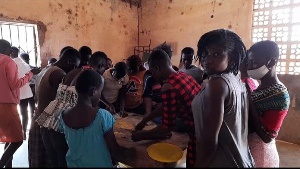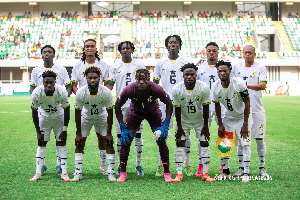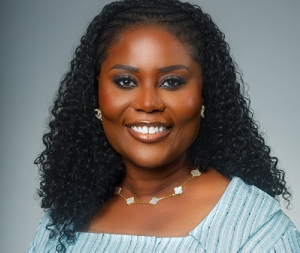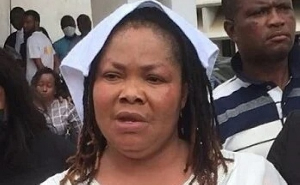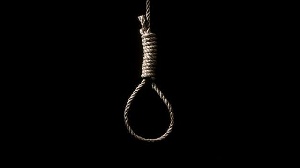The Planned Parenthood Association of Ghana (PPAG) says it has found what it considers a potent remedy for adolescent pregnancy and child marriage in Bolgatanga and it is implementing it in the Upper East regional capital.
The remedy— supporting deprived girls to set up their own businesses— was discovered as the PPAG interacted with some teenage girls at a session organised in the capital months ago. The meeting was part of a PPAG initiative dubbed “Child Marriage Project” and sponsored by the United Nations Population Fund (UNFPA).
Subsequently, the PPAG organised a livelihood training that saw a number of adolescent girls as well as members of the Sisters’ Club, a local girls-only society established by the PPAG to reduce teenage pregnancy and child marriage rates, trained how to produce pastries as young entrepreneurs, market the products and fend for themselves with the proceeds realised.
“The fact is that I’ve been in so many communities and when we ask of the challenges, some of the causes of these teenage pregnancies and early marriages, normally they mention lack of parental care and control. Then, they add poverty. At times, they need basic things but they can’t have that from their parents. They have to really depend on their parents for all their basic needs. When they need sanitary pads, they need to ask from their parents. So, what we thought was that if poverty is a cause of teenage pregnancies and early marriages, then, we need to have an activity that will empower these girls to be self-reliant so they can work and take care of themselves and their families.
“This programme is to empower these adolescent girls from ten to nineteen years, even those who are more than that, to learn a skill. At least, when they learn how to produce pastries, it will really help to reduce the dependency ratio. That is why we came up with this mini livelihood skills development to help these adolescent girls achieve their aims and aspirations. We will try help them with some funds to help them start up their businesses. It will empower them to be self-reliant instead of relying on males who would lure them into sexual activities,” the PPAG/UNFPA’s Field Officer in charge of the Bolgatanga Municipality, Martin Anyoka, told Starr News at the workshop.
Beneficiaries provided with rare counselling and screening services
Some adolescents in the region are reported to be shying away from seeking healthcare for some infections said to be affecting their sexual and reproductive health in silence owing to the absence of youth-friendly services at some health facilities.
The trainers and trainees displayed the products after the training.
The PPAG, in addition to the empowerment training, also provided a youth-friendly corner at the training venue where health professionals offered free counselling, screening as well as sexual and reproductive health services to the adolescents being trained.
“Adolescents should seek healthcare services. Most of the adolescents are timid. They don’t want to come out because they think they are young and people would make fun of them when they come out. They should try and come out so they can get help. They should come to the health facilities; they will be accorded privacy and taken care of,” David Akoubila, a nurse at the Sherigu Health Centre, advised in a Starr News interview at the training scene.
After the training, the beneficiaries spoke about the impact their participation in the society established by the PPAG— the Sisters’ Club— had had on their lives. Whilst they generally said they had learned about the hazards associated with teenage pregnancy and early marriage, some said the time spent so far with their peers in the club had helped them to overcome a timid temperament they used to struggle with. They also expressed their excitement about the value the training, facilitated by a teacher with the Home Economics Department of the Zamse Senior/Technical School (ZAMSTECH) in Bolgatanga, Felicity Sibiri, had added to their lives.
“I’m very happy about the training. The experience was great. I’m not with my parents. At least, I can do something for myself, buy the basic things I need on my own, instead of getting pregnant at a tender age,” Celestina Adangtole Abaa, a student at the Gowrie Senior High/Technical School in Bongo, said.
Dorcas Ayelguma Asakipala, a student at the Our Ladies of Lourdes Girls’ Senior High School in Navrongo, stated: “I’m a Home Economics student. My school has not yet started practical lessons because of the COVID-19 break. The exposure I’ve had at this programme has put me in a position where I can truly feel that I already have an upper hand at the Home Economics practical lessons we shall have when schools reopen.”
For Felicia Abane Amaliba, a former student at the Zuarungu Senior High School, the skill acquired at the training means her family has been relieved of a burden because she can now set up her own business and never again bother her petty-trader mother for her basic needs.
Regional News of Tuesday, 15 December 2020
Source: dailymailgh.com

